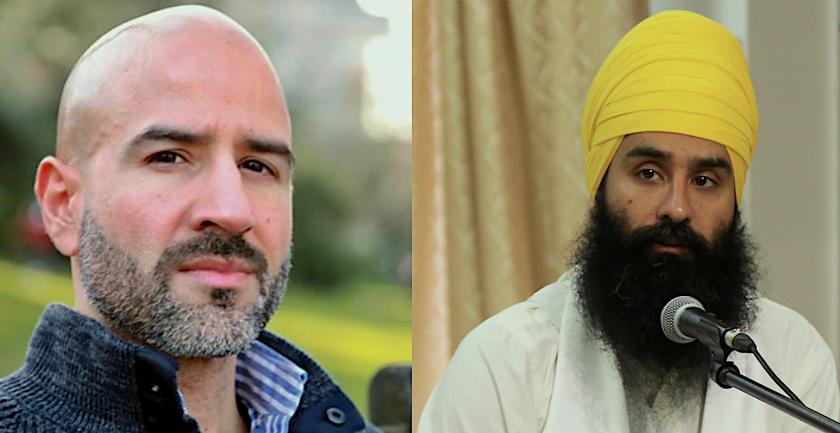Journalist Sunny Hundal has a long track record as a writer and blogger concerned with issues of race, politics and ethnicity. He’s also the brother of the late Jagraj Singh, an influential preacher who encouraged a dramatic upsurge of interest in the Sikh faith among young people, not least through his hugely successful YouTube channel. The determinedly non-religious Sunny used to argue bitterly with his brother, so much so that they didn’t speak to each other for years.
Perhaps they would eventually have come to a reconciliation had Jagrav not died of cancer (aged 38) in 2017, but Sunny will never know. This documentary for BBC One was partly an account of how the brothers grew up and grew apart, but began with Hundal’s investigation of a new wave of Sikh radicalism whose adherents vehemently oppose interfaith marriages involving Sikhs, which has led to protests and riots in (for instance) Leicester and Leamington Spa. Hundal had tracked down one particularly eloquent representative of this new militancy, and his comments about how “British values have always been about whiteness” or his claim that “ultimately Britain doesn’t have space for us” struck a distinctly ominous note. Hundal deplored the notion of a closed and insular Sikhism, deliberately cutting itself off from mainstream British life.
Jagraj's widow told Sunny how offensive his criticisms had been
Above all though, the film seemed to be an expression of Sunny’s efforts to come to terms with the loss of his brother, and to try to understand how he’d been converted from a hard-drinking partygoer and hip hop fan to a charismatic proselytiser for the Sikh faith. Jagraj’s attitude to the radical Sikhs was that while he wouldn’t condone violence, he supported the principle of their protests. It took a major effort from Hundal to begin to understand the profound values his brother had found in his faith. The penny began to drop when he visited a Sikhi camp in the remote Welsh hills, and gained an inkling of how “Simran” meditation might build a sense of belonging and identity.
The most powerful sequences were the most personal ones, like the moment when the boys’ mother recalled to Hundal how “I never prayed for you as much as I prayed for him” – since Jagraj needed it more – or when Jagraj’s widow Sukhmani bluntly told Sunny how offensive his criticisms had been to his brother. Hundal tried to rationalise the brotherly conflict as representative of a wider struggle of “a young British community trying to find its feet”. What he really meant was that he can’t turn back time, and the realisation is a painful one.















Add comment